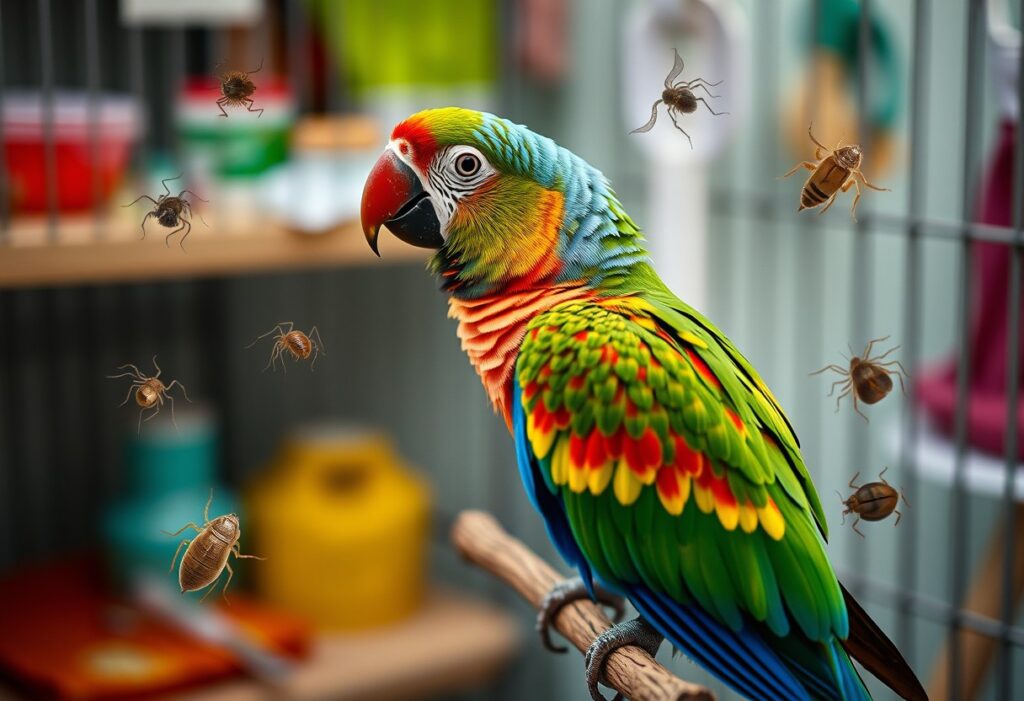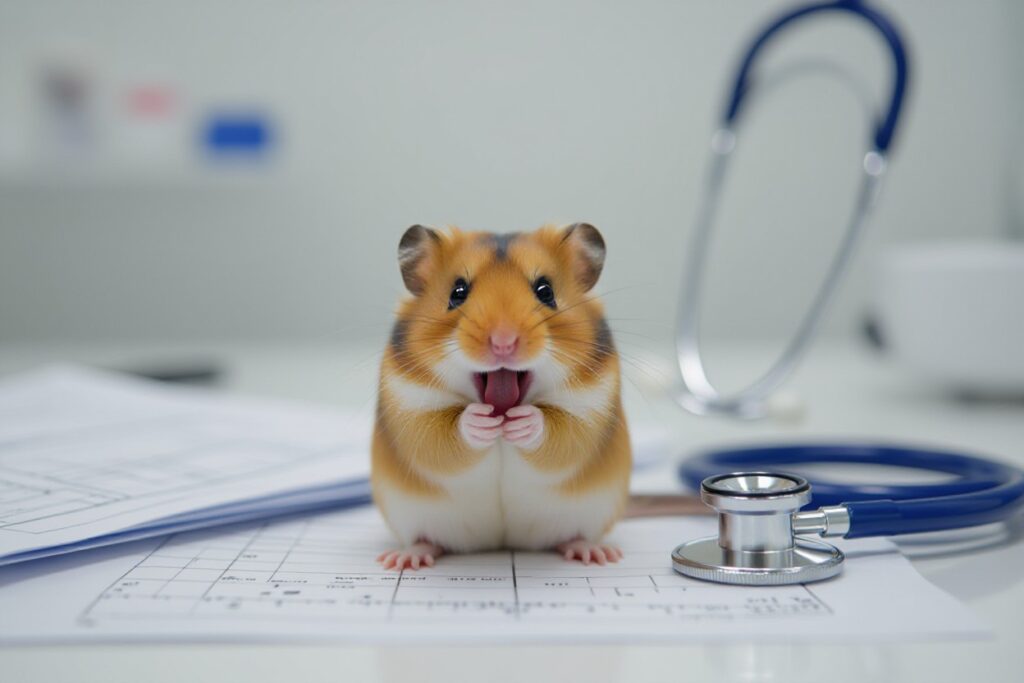Over time, bird parasites can pose serious health risks to your feathered friends. Recognizing the signs of infestations is crucial for ensuring your birds remain healthy and vibrant. In this guide, you will learn how to identify common parasites such as mites and worms, as well as effective treatment options to help your birds regain their vitality. By understanding how to monitor your pets for symptoms and applying appropriate remedies, you’ll create a safe environment that contributes to your birds’ overall well-being.
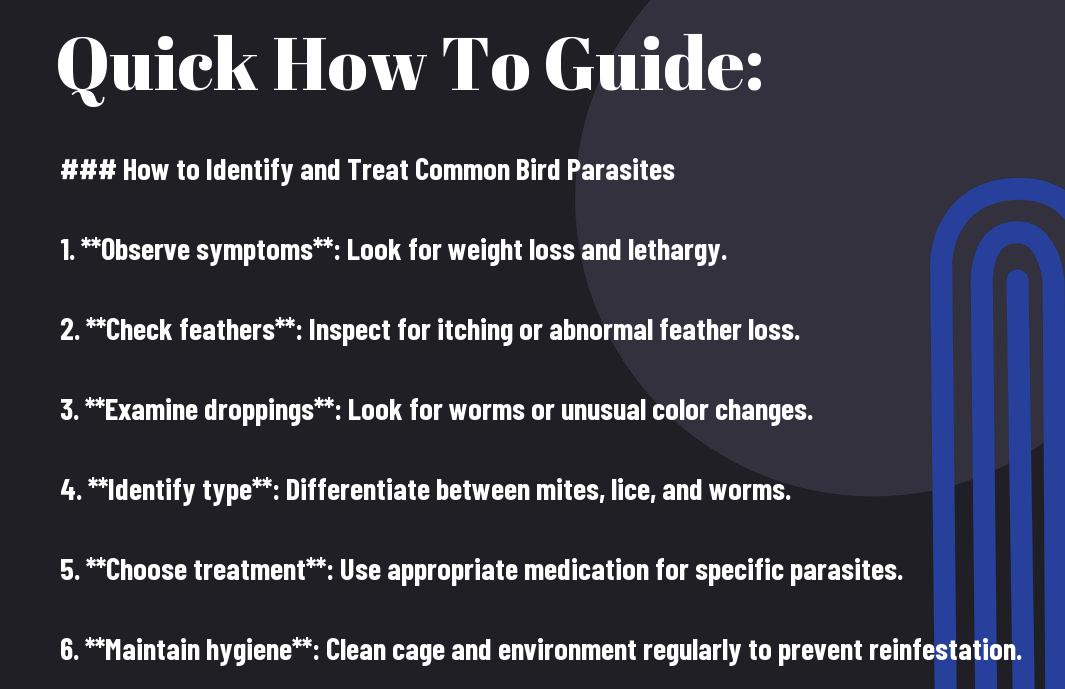
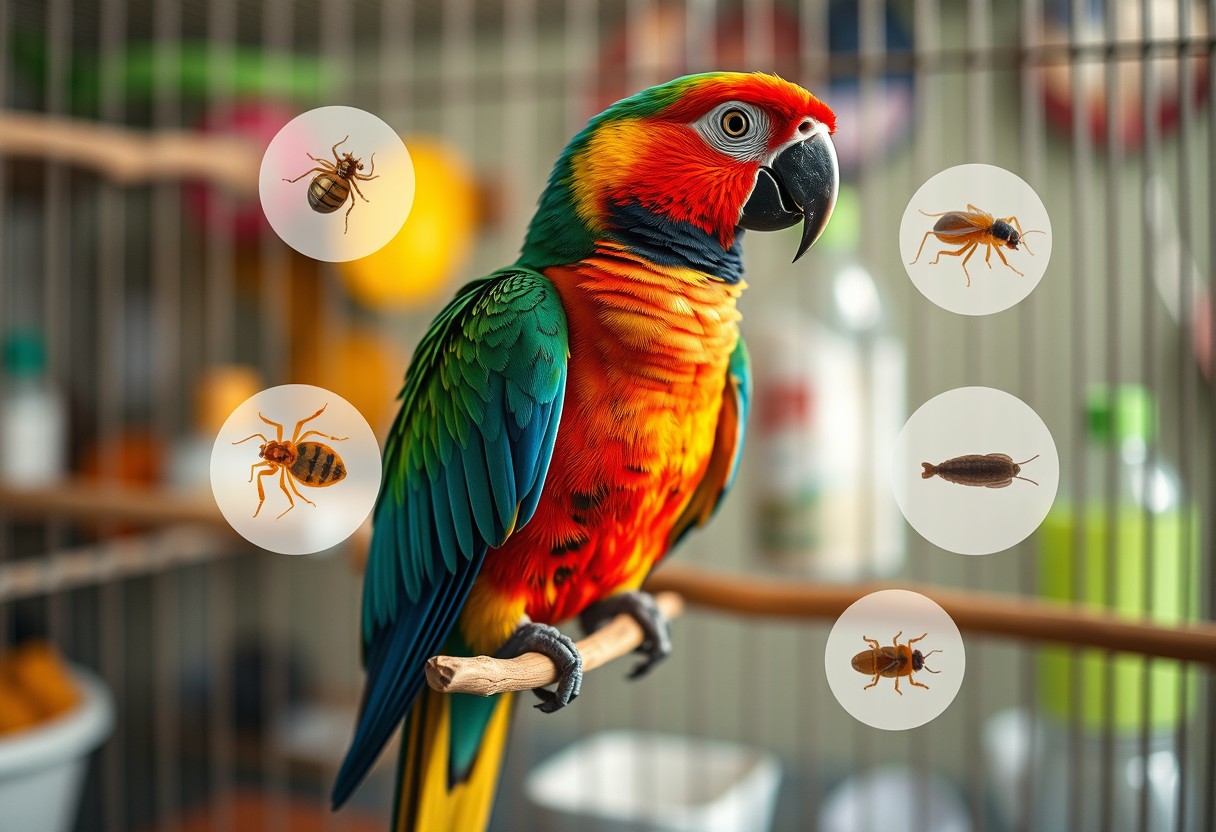
Identifying Common Bird Parasites
The identification of common bird parasites is crucial for the well-being of your feathered friends. When you know what to look for, you can take appropriate measures to mitigate infestations before they become serious problems. From external parasites like mites and fleas to internal parasites such as worms, understanding the signs of infestation will allow you to provide the best care for your birds.
How to Recognize Signs of Infestation
Clearly recognizing the signs of parasite infestation requires vigilance on your part as a bird owner. Common symptoms may include excessive scratching, feather loss, and changes in behavior. If you notice your bird becoming more withdrawn or if its feathers look unkempt, these may be early indicators of a potential issue. Additionally, some parasites can cause visible lumps or lesions on the skin, while others may lead to changes in your bird’s droppings, which can indicate internal infestations.
Close observation is crucial to catch these signs early. You should also be aware that some parasites may not present noticeable symptoms right away. Therefore, regular check-ups and being informed about the common signs can help you take preemptive action.
Tips for Inspecting Your Birds Thoroughly
Thoroughly inspecting your birds not only helps you catch any early signs of parasites but also ensures their overall health and hygiene. Begin your inspection by observing your bird’s behavior closely, noting any unusual habits such as excessive preening or unusual vocalizations. Then, carefully check for visible signs of parasites like mites, which may appear as small, moving specks on the skin or feathers.
- Check for feather loss and skin irritations.
- Look for excessive scratching or discomfort.
- Inspect droppings for abnormal shapes or colors.
After conducting a thorough visual inspection, gently handle your bird to check more inaccessible areas such as under its wings and tail. Regular inspections not only help in early detection but also build trust between you and your pet. Be sure to make this a part of your routine as a responsible bird owner.
- Perform regular checks on hard-to-reach areas.
- Establish a consistent inspection routine.
- Maintain good hygiene practices to prevent infestations.
Recognize that environmental factors play a significant role in the susceptibility of birds to parasites. When certain conditions are present, they can create an optimal breeding ground for parasites to thrive. Keeping your bird’s living environment clean and stress-free can significantly reduce the chances of an infestation.
Factors Contributing to Parasite Infestations
Common factors that contribute to parasite infestations include poor hygiene, overcrowding, and stress among birds. Filthy living conditions can lead to increased parasite exposure, while overcrowding can ease the transfer of parasites from one bird to another. Additionally, a stressed bird is less likely to maintain its normal grooming habits, making it susceptible to a range of parasites, from feather mites to intestinal worms.
- Poor hygiene can lead to increased parasite populations.
- Overcrowding can facilitate easy transmission of parasites.
- Stress can affect a bird’s immune system, making it easier for parasites to establish.
Any change in your bird’s behavior or physical appearance should prompt a thorough investigation into possible causes, including environmental stressors or poor conditions. By maintaining a clean living environment and monitoring for signs of stress, you can ensure that your birds remain healthy and parasite-free.
- Reduce stress factors in your bird’s environment.
- Keep living spaces clean and tidy to deter parasite growth.
- Monitor for frequent changes in behavior or health issues.
Bird owners should always be proactive about creating a clean and safe environment for their pets to minimize the risk of parasites. After all, a healthy bird is a happy bird!
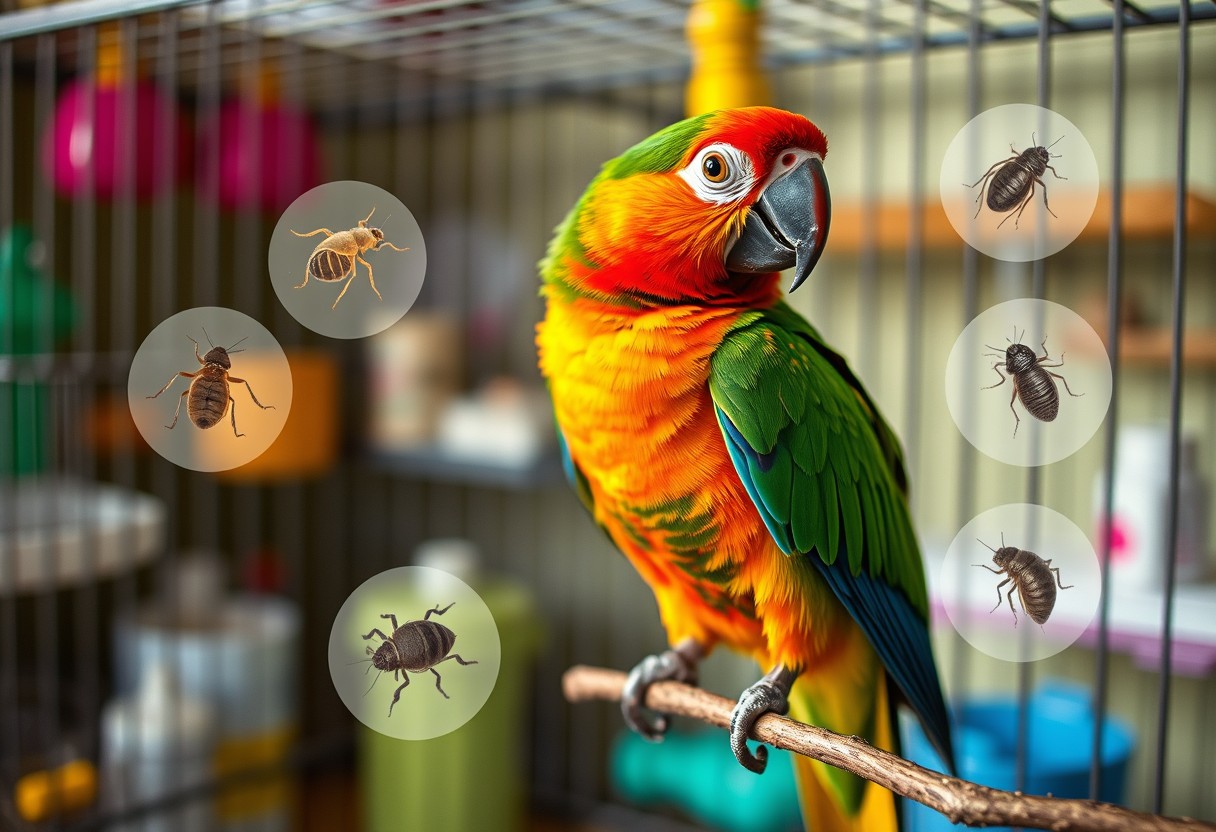
Types of Common Bird Parasites
Even the healthiest birds can be afflicted by parasites that can hinder their overall well-being. Understanding the types of **common bird parasites** is crucial to ensure your feathered friend remains healthy. Each parasite has unique characteristics and can pose varying degrees of risk. Here’s a brief overview:
| Type of Parasite | Description |
|---|---|
| Feather Mites | Small, microscopic insects that reside in the feathers of birds. |
| Lice | Winged insects feeding on feathers, skin, or blood. |
| Fleas | External parasites that can cause scratching and discomfort. |
| Worms | Internal parasites that can lead to malnutrition and health issues. |
| Ticks | Parasites that latch onto a bird’s skin and can spread disease. |
How to Identify Feather Mites
Feather mites are microscopic parasites that can significantly affect your bird’s health, causing itching and discomfort. These tiny critters are often found deep within the feathers, making them challenging to identify visually. However, signs such as excessive scratching, feather loss, and skin irritation can indicate an infestation. You might notice your bird preening more than usual as it attempts to rid itself of the mites.
To confirm a feather mite presence, you can observe your bird in natural light. Look for small specks on the feathers, and if possible, consult with a veterinarian. They can perform skin scrapings and utilize a microscope to identify the presence of **feather mites**. Keeping a close watch on your bird’s behavior and feather condition is vital to catch these infestations early.
Tips for Spotting Lice and Fleas
Bird lice and fleas are another set of unwanted guests that can affect your beloved pet. These pests are more visible than feather mites, with **lice** often appearing as tiny, flat insects that cling to feathers or skin. **Fleas**, on the other hand, are small, jumping insects that are generally found near the bird’s skin. Here are some tips for spotting these nuisances:
- Inspect your bird’s feathers closely for any moving insects.
- Look for signs of irritation, such as red patches or sores.
- Monitor your bird’s behavior for increased scratching or preening.
- Check around your bird’s living area for flea dirt, which looks like fine black specks.
- Consider consulting a vet for proper diagnostics and treatment options.
Recognizing the signs of **lice** and **fleas** early can prevent a larger infestation and keep your bird comfortable. Ensuring a clean environment will help reduce the chances of these parasites taking hold.
Bird fleas specifically thrive in environments with plenty of organic material and can infest nests. Ensuring your bird’s habitat is free of debris and regularly cleaned will help combat this issue. It’s also wise to perform periodic health checks to catch signs of these pests early.
- Keep your bird’s cage and surrounding areas clean.
- Use preventive treatments recommended by a vet.
- Be vigilant about the signs of infestation.
- Consider regular veterinary check-ups for your bird.
- Educate yourself on common parasites affecting birds.
Recognizing signs of **lice** and **fleas** can ensure your bird remains healthy and happy in your care.
Factors that Lead to Worm Infections
Another problematic category of parasites are worms, which can cause severe health issues in birds. Factors that can lead to **worm infections** include poor sanitation, unhygienic living conditions, and exposure to contaminated food or water. Birds that are allowed to roam freely outdoors are particularly at risk, as they may ingest worm eggs or larvae hidden in the environment.
- Maintain clean living environments for your birds.
- Ensure that food and water sources are safe and regularly refreshed.
- Limit exposure to potentially infected areas.
- Monitor your bird’s health regularly for any signs of lethargy or digestive issues.
- Consult a vet if you suspect a worm infection.
This comprehensive approach keeps your birds healthier and reduces the chances of worm infestations. Additionally, forming a partnership with your vet can help ensure that appropriate preventive measures are in place.
On a related note, the life cycle of worms can often mean that an infection goes unnoticed for a while, allowing them to multiply significantly. Regular health assessments and maintaining good hygiene in your bird’s environment is crucial in combating these internal foes.
- Strengthening your bird’s diet can help its immune system.
- Hygiene is critical to prevent worm infections.
- Learn about the different types of worms that can affect birds.
- Internal parasite tests can pinpoint potential risks.
- Act quickly if you notice abnormal behaviors in your bird.
This diligence can significantly enhance your bird’s quality of life and minimize the threat of serious **worm infections**.
Plus, by maintaining your bird’s environment and monitoring for signs of **internal** and **external parasites**, you can promote a thriving and healthy pet. Your birds deserve to live free of discomfort from such infestations that may result in serious health implications.
Treatment Options for Bird Parasites
After identifying the presence of parasites in your bird, it’s crucial to address the issue promptly to ensure your pet’s health and well-being. There are several treatment options available, ranging from over-the-counter medications to prescription treatments, and it’s imperative to choose the right one based on the type of parasite and the severity of the infection.
How to Select Appropriate Treatments
Assuming you have correctly identified the type of parasite affecting your bird, the next step is selecting an appropriate treatment. You should research the specific medications available for the type of parasite in question, whether it be mites, worms, or other common infestations. Consulting with your avian veterinarian is the best course of action since they can recommend products tailored to your bird’s particular needs and avoid any potential adverse side effects.
In addition to veterinary guidance, consider reviewing product labels and testimonials from other bird owners to help inform your decision. Don’t forget to factor in your bird’s age, weight, and overall health status, as these can influence the choice of treatment. Always be cautious of home remedies that may not have been scientifically proven, as these could endanger your bird’s health.
Tips for Administering Medication Safely
One of the imperative aspects of treating your bird for parasites is administering medication safely. It’s vital to follow the veterinarian’s instructions closely, including the dosage and frequency of treatment. Using a syringe or dropper can make it easier to control the amount of medication you’re giving your bird, ensuring they receive the right dose without overwhelming them.
- Ensure the medication is appropriate for your bird’s species and condition.
- Administer at the correct times, adhering to the dosage prescribed.
- Monitor your bird for any signs of adverse reactions to the medication.
- Be patient and gentle during the process to reduce stress for your bird.
- Knowing proper techniques can help make administering medication a smoother experience.
Understanding what procedures to follow when giving your bird medication is crucial for treatment success. Make sure to establish a consistent routine that incorporates medication administration along with rewards or treats, creating a positive environment that can help your bird associate treatment with a non-threatening experience.
- Schedule medication times to build a reliable routine.
- Reward your bird post-treatment to build positive associations.
- Be calm and collected to avoid stressing your bird out.
- Consider enlisting the help of another person for challenging birds.
- Knowing the right approach can significantly enhance the effectiveness of the treatment.
Factors Affecting Treatment Success
Many factors influence the success of treating your bird for parasites, including the specific parasitic species, your bird’s overall health, and the type of treatment used. It’s imperative to evaluate how long the parasites have been present, as prolonged infestations can lead to serious health issues. The effectiveness of the treatment may be diminished if the parasites have developed any resistance to certain medications.
- Consider the type of parasite and how it affects treatment response.
- The bird’s health condition plays a critical role in treatment success.
- The duration of the infestation can influence how well your bird responds.
- Dietary factors may affect the bird’s ability to recover.
- Recognizing these factors can help tailor an effective treatment approach.
For optimal results, it’s important to provide a clean and stress-free environment for your bird during treatment. Regular cleaning of their habitat can eliminate residual parasites and increase the chances of successful recovery. Additionally, your bird’s nutrition and overall wellness must be closely monitored throughout the process.
- Maintain a clean and hygienic habitat for your bird.
- Feed a balanced diet that supports recovery.
- Monitor health signs during and after treatment.
- Follow-up with your veterinarian for further assessments.
- Recognizing these elements will enhance your ability to manage treatment effectively.
Bird owners must be vigilant when it comes to identifying and treating parasites. With the proper knowledge and resources, you can take swift action to protect your feathered friend from the discomfort and dangers posed by these pests. Understanding how to navigate treatment options is crucial in ensuring your bird remains healthy and happy.
Prevention Strategies
For bird owners, prevention is key to ensuring your feathered friends remain healthy and free from parasites. The strategies to keep your birds safe revolve around maintaining proper hygiene, conducting regular health checks, and creating an environment that promotes overall wellness. Following these strategies can significantly reduce the risks associated with common bird parasites.
How to Maintain a Clean Living Environment
To ensure that your birds live in a hygienic space, it’s necessary to clean their cages and surrounding areas regularly. Begin by removing waste and uneaten food daily, as these can attract pests and promote the growth of harmful bacteria. You should also wash the food and water dishes with hot, soapy water at least once a week, and change the bedding frequently to minimize any chance of infestation. Furthermore, consider placing your bird’s cage in a location with good ventilation to discourage mold and parasites.
Additionally, it’s crucial to disinfect the cage and the entire environment at regular intervals. Use a safe, bird-friendly disinfectant to wipe down surfaces and reduce the likelihood of leftover eggs or larvae from previous infestations. Keep an eye out for signs of dust buildup or mold, as these can harbor parasitic threats. By maintaining a clean living environment, you set the stage for your bird’s health and well-being.
Tips for Regular Health Checks
To effectively monitor your bird’s health, establish a routine of regular observation and check-ups. Make a habit of watching your birds for any changes in behavior, appetite, or appearance. Changes such as excessive scratching, dull feathers, or lethargy can indicate potential parasite infestations. Additionally, build a rapport with an avian veterinarian who can conduct routine health assessments and help you stay ahead of any developing issues.
- Conduct daily observations of your bird for signs of parasites.
- Schedule regular veterinary appointments for health assessments.
- Monitor their behavior and appearances to catch potential issues early.
The key to keeping your birds safe from parasites lies in your vigilant observation and prompt action.
Environment factors play a crucial role in your bird’s long-term health. A bird-friendly space should prioritize proper ventilation, natural light, and a low-stress atmosphere. All these elements contribute positively to their immune system, making them less susceptible to living organisms like parasites. You can further enhance their habitat by providing various enriching toys and perches to keep them mentally stimulated.
- Ensure adequate ventilation for fresh air circulation.
- Provide ample natural light for overall well-being.
- Invest in mental stimulation to enhance their quality of life.
This multifaceted approach sets a solid foundation for your bird’s health, reducing the chances of parasite infestation.
Factors That Support Overall Bird Health
Understanding these factors is necessary for preventing both common and severe health issues in your birds. A balanced diet, including a variety of seeds, fruits, and vegetables, is necessary to boost immunity and energy levels. Additionally, maintaining proper hydration with fresh water is crucial to support metabolic processes in your bird. A stable, low-stress environment will further help in enhancing your bird’s resilience to parasites.
- Provide a balanced diet to boost immunity.
- Ensure fresh water is always available.
- Avoid sudden changes to minimize stress.
This holistic approach will foster your bird’s overall health and vitality.
This comprehensive focus on clean living environments, regular health checks, and supporting overall bird health can ensure you are doing your utmost to prevent parasite infestations. By embracing these preventative measures, you can foster a happier, healthier life for your birds, free from the threat of parasites.
- Establish a cleaning routine for a clean environment.
- Conduct regular health checks to catch issues early.
- Provide a varied diet and a sensory-rich habitat.
The welfare of your birds lies in your hands, so commit to these prevention strategies for optimal health.
Conclusion
Considering all points, understanding how to identify and treat common bird parasites is imperative for ensuring the well-being of your feathered companions. By familiarizing yourself with the signs and symptoms associated with common parasites such as mites, lice, and worms, you can take proactive steps in maintaining their health. Observing behavior, feather quality, and overall appearance can serve as crucial indicators of parasite infestation. Being vigilant and knowledgeable will empower you to spot these issues early, allowing for timely intervention and care.
Once you identify the parasites affecting your birds, it is critical to implement the appropriate treatment swiftly. Whether it involves consulting a veterinarian for prescription medications, using over-the-counter treatments, or even maintaining a clean living environment to minimize infestations, your prompt action can make a significant difference. Remember that regular health checks and maintaining good hygiene practices in your birds’ habitat will help prevent the resurgence of these unwanted guests. By taking these measures, you will not only protect your birds but also enhance their quality of life, fostering a happier and healthier environment for them to thrive.
FAQ
Q: How can I identify common bird parasites in my pet bird?
A: Identifying parasites in birds requires careful observation of your pet’s behavior and physical condition. Common signs of parasites include excessive scratching or preening, changes in appetite, lethargy, and unusual droppings. Feather loss, lesions, or visible insects (like mites) on the skin or feathers are also indicators. For instance, if you notice your bird’s feathers looking ragged or they exhibit frequent behavior like shaking their head, it may be infested with mites. If you’re uncertain, a veterinary examination is recommended for proper diagnosis.
Q: What are the most common types of parasites that affect birds?
A: Common bird parasites include feather mites, air sac mites, and intestinal worms. Feather mites live on the surface of the skin and feathers, causing irritation and feather loss. Air sac mites affect a bird’s respiratory system, leading to symptoms such as labored breathing and coughing. Intestinal worms can lead to weight loss, changes in droppings, and digestive issues. Observing your bird for symptoms and conducting regular health checks can help in early detection of these parasites.
Q: What are the best treatment options for bird parasites?
A: Treatment for bird parasites varies based on the type of parasite identified. For external parasites like mites, avian veterinarians typically prescribe topical or oral medications, such as ivermectin or permethrin. For internal parasites like worms, deworming medications may be used. It’s necessary to follow the specific dosage and administration instructions provided by your veterinarian. Additionally, practicing good hygiene, such as regularly cleaning the bird’s cage and maintaining a clean feeding routine, can help prevent reinfestation.
